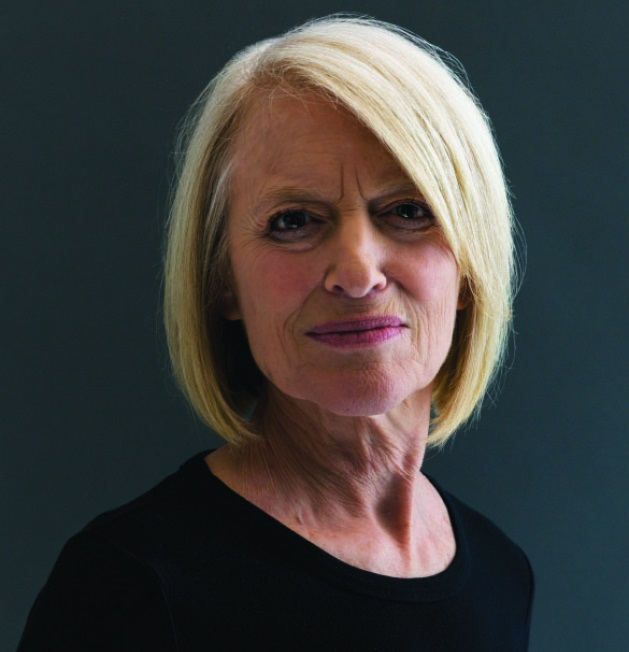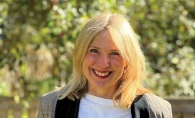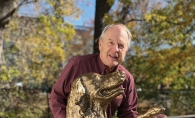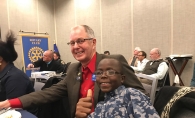
Helen Abdo sits on a couch in a wood-paneled room, her white hair is elegantly curled. With a determined look, she turns to her interviewer. It’s clear that what she is about to say is of great importance to her. Something she needs to pass down to her children, grandchildren and great-grandchildren.
“It’s important to respect yourself and that in turn will show you how to respect others,” she says with great emotion. “To be respected is the most important thing. And to achieve to the best of your ability. Be grateful for what you’ve got and take care of your body and your soul.”
That is the last bit of wisdom she gives in a documentary made about her by local filmmaker, Maxine Davis. Davis’ company, Every Life is a Story, specializes in creating video biographies about the lives of everyday people.
“People that usually hire me are interested in their family history,” Davis says. “They’re very fond of their parents or grandparents and they see them getting older. They want to keep that story for the family.”
Keeping family stories alive is important to Larry Abdo, Helen Abdo’s son.
“All the wisdom that my mom had, I didn’t want to lose that,” Larry says. “[Maxine] did a really great job at bringing out my mom’s personality.”
Larry is the owner of Nicollet Island Inn and other businesses in the Twin Cities run under the Abdo Market House banner. Legacy and family are important to him.
“I wanted my grandchildren to know what their ancestry was. I wanted them to know that they belong to a very strong, dedicated family,” Larry explains. “If you don’t know where you belong, if you don’t feel like you belong, you don’t see where you belong, you’re just wandering.”
He believes knowing your family history gives a sense of grounding and belonging. The walls of his home are covered in 100 portraits and photos of family members from seven generations.
“[Davis’] videos help concentrate that idea,” he says. “I did the video for my children, and my grandchildren and my great grandchildren, not for me. Not for my mom.”
Larry watches the video every year between Christmas and New Year’s. Other families use their videos in different ways.
“It’s not something we just take out regularly,” Paul Bachman says of the videos Davis made about his parents, Stanley and Georgia “GeeGee” Bachman. “My dad died a year ago and it was just perfect for his funeral service. And my mom died four years ago and we used it at her service. We got so many comments from the people who attended … It was a great way to learn about somebody at a funeral. It sets a nice tone because you’re there to remember somebody and when you’re recalling your own life, it’s just very special. It kind of took a little bit of pressure off giving eulogies, too.”
Bachman says the documentaries are a way of seeing relatives at their best.
“You get to see your folks again at a time in their life when they were healthy and things were good and they were kind of enthusiastic about telling their story,” he says.
Davis says the process takes at least two months from start to finish, though she has done rush jobs in about a month when needed. Depending on time for research and how much depth you would like in your own story, Davis can make a video about your life that lasts anywhere from five minutes to an hour. She brings in lighting, a camera crew, even hair and makeup.
“She made it really easy,” Bachman says. “Our job was to come up with enough photos and to make the video part of it interesting. My folks were helping with that. She set up the interviews with them. She did just a great job of eliciting a story from them. I think my mom was kind of nervous about it at first. As the process went on, she did great. When we got it, we were just thrilled.”
Christine Warren understands the thrill of having a completed documentary. She’s gone through the process twice: once for her husband, Robert Nemitz, and once for herself. Nemitz was diagnosed with amyotrophic lateral sclerosis (ALS) in 2012. The neurological disease progresses quickly, and she wanted her husband to tell his story in his own words while he still could. Since Nemitz would tire easily, Davis did the interview in four parts over a few months. Davis, Warren and Nemitz’s daughter interviewed him.
“It was very therapeutic for Bob,” Warren says. “He could own all he had done in his life. He could put his arms around it and have something concrete that he could give to his children and grandchildren.”
In addition to the finished film, clients receive a transcript of all interviews and the unedited video. Davis takes care in going into depth. When Warren decided to do a documentary of her own, she discovered her family had boxes of film from the 1920s and boxes full of photographs. Not only did Davis go through all of it, she ended up inadvertently organizing it for Warren.
“It was a privilege working with her,” Warren says. “I trust her. She’s authentic, she’s honest, very open-minded. She’s a woman who has a lot of grace and real knowledge. But when you sit with her, she’s down to earth. She’s very articulate, incredibly bright. It’s fun to work with someone like that. I felt understood by her. She guides you to tell your story.”
Not only does she guide, she involves you.
“I don’t take this information and disappear and come up with a video,” Davis says. “I work with the families so they know the story I’m telling. They read the script. We edit the script. We work together. It’s almost in a way time-consuming for the family to want to be able to tell their story.”
Time-consuming, yet not overwhelming. Davis makes sure the family gets a video they will treasure forever. She gets to know her subjects and finds out what needs to be done to make the documentaries extra special. For Helen, the entire documentary was narrated by her granddaughter.
“It’s real privilege to work with families, to keep their story for now and the next generation,” Davis says. She says she knows people can be reserved and some would prefer not to share their life on camera. To those people, she wants to emphasize to not stay silent.
“Don’t let the stories disappear. It’s important to share. Don’t think it’s so private that you can’t share with people,” she says. “Because when you share, they understand where they came from. This helps people find their roots. And your roots are important, even if you think they’re not.”









